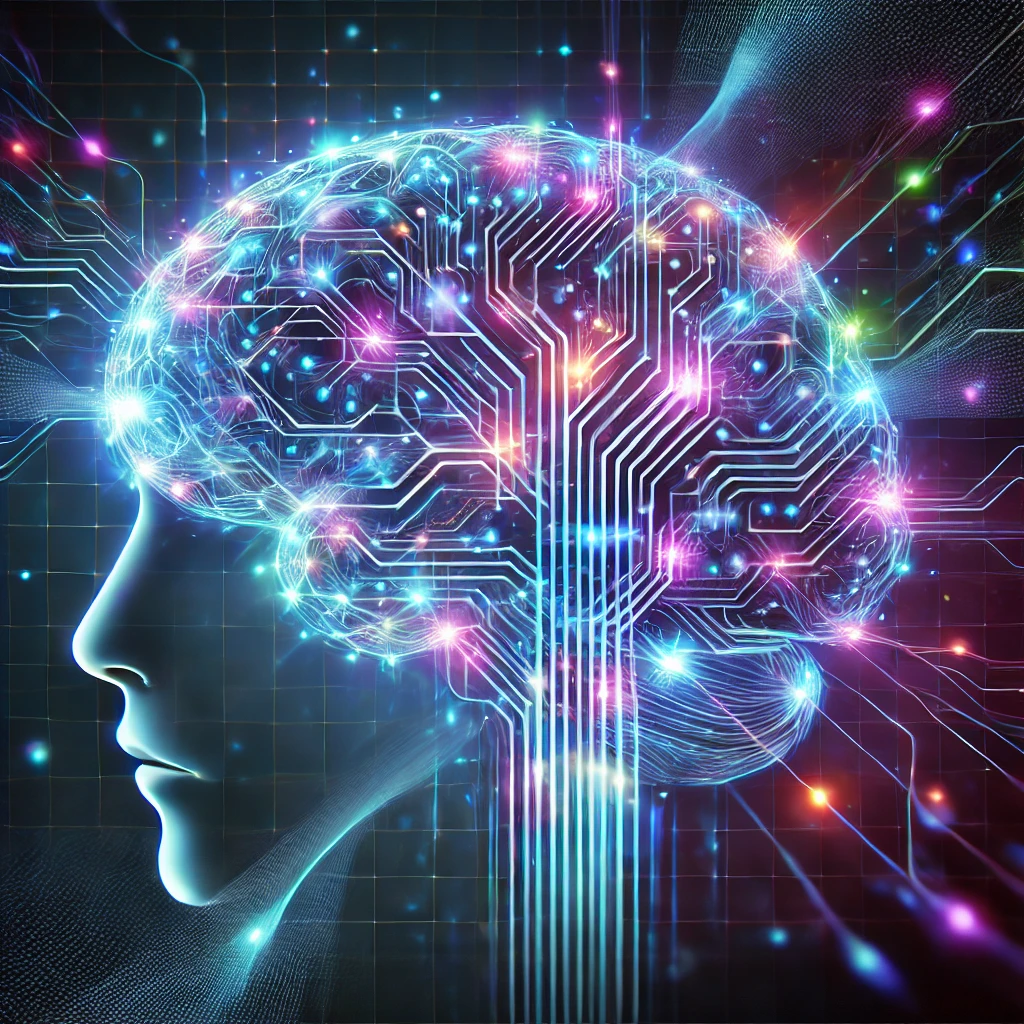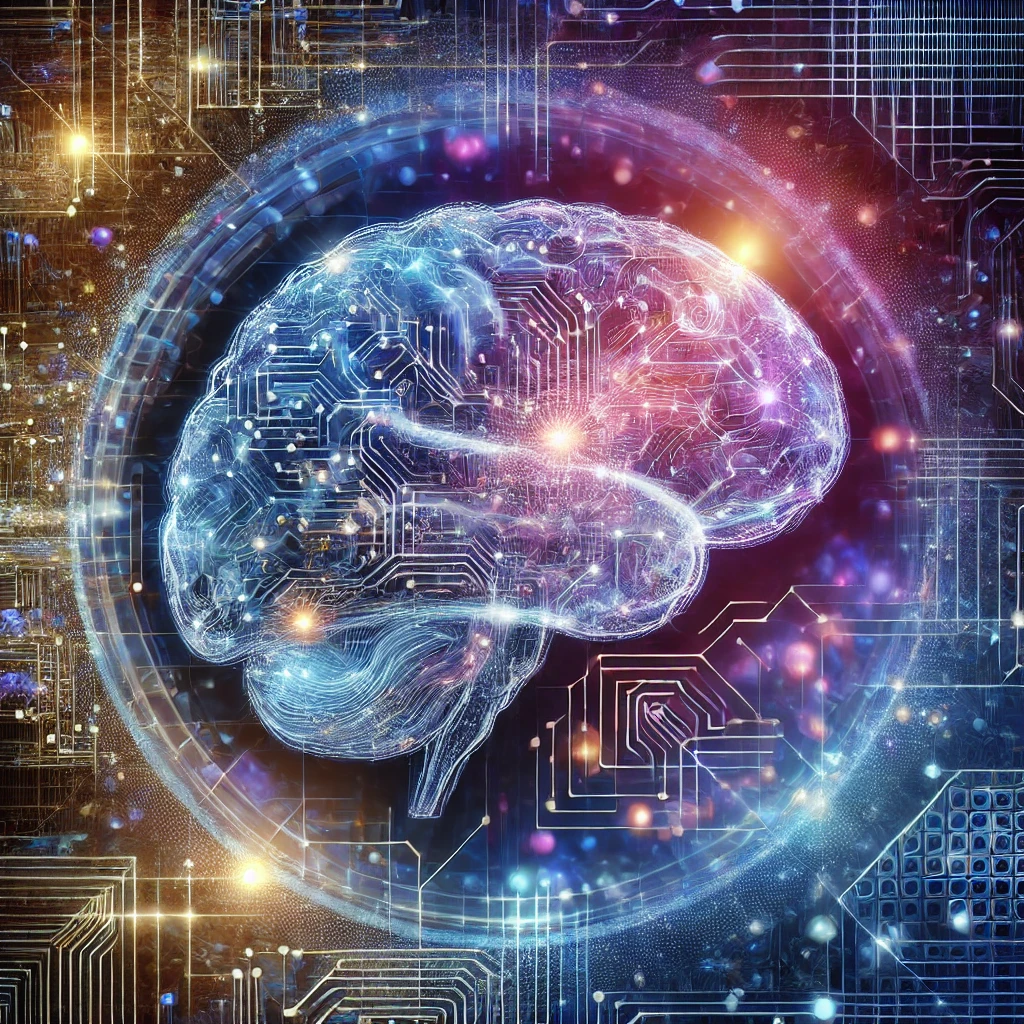The Dawn of Artificial General Intelligence: Are We Ready?
Artificial General Intelligence (AGI) is a term that sparks both excitement and concern, doesn’t it? If you’re reading this, you’re likely intrigued by the possibilities that AGI brings but perhaps also a little apprehensive about its potential impacts. After all, the idea of machines thinking, learning, and adapting like humans is not just a concept from science fiction anymore—it’s becoming a reality.
Imagine a world where machines can solve problems, understand emotions, and even create art or literature indistinguishable from that of humans. What if I told you that the rapid advancements in AI are pushing us closer to that world? The transformation AGI promises could reshape every aspect of society—from the way we work and live to the fundamental nature of intelligence itself. By diving into this topic, you’ll uncover the potential and challenges of AGI, equipping you with the insights needed to grasp this complex but fascinating subject.
In this comprehensive guide, we’ll explore what Artificial General Intelligence really means, why it matters to you, and what the future could hold. We’ll examine the ongoing debates, the ethical implications, and the technological hurdles that researchers face. By the end of this article, you’ll have a well-rounded understanding of AGI and be prepared to engage with this critical and timely conversation.
Understanding Artificial General Intelligence: The Next Frontier in AI

What Is Artificial General Intelligence?
Artificial General Intelligence, often abbreviated as AGI, refers to a type of AI that possesses the ability to understand, learn, and apply intelligence across a wide range of tasks at a human-like level. Unlike Narrow AI, which is designed for specific tasks like language translation or image recognition, AGI aims to perform any intellectual task that a human can do. This ability to generalize knowledge and transfer learning from one domain to another is what sets AGI apart.
The concept of AGI has long been a goal in the field of AI, but it remains largely theoretical. While significant strides have been made in developing AI systems that excel in specific areas, creating an AI that can think and reason like a human is an entirely different challenge. Achieving AGI would require breakthroughs in several key areas, including machine learning, neural networks, and cognitive computing.
The Potential Impact of Artificial General Intelligence
The emergence of Artificial General Intelligence could be a game-changer for virtually every industry. Imagine AGI systems that can perform medical diagnoses more accurately than doctors, create innovative business strategies, or even contribute to scientific discoveries. The productivity and efficiency gains alone could lead to unprecedented economic growth. However, this also raises questions about job displacement, as machines could potentially outperform humans in a wide array of tasks.
Furthermore, AGI could also have profound implications for society and ethics. If machines can think and make decisions autonomously, what moral responsibilities do we, as creators, hold? How do we ensure that AGI systems act in ways that are beneficial to humanity and do not pose unintended risks? These are just a few of the many complex issues that arise as we move closer to developing AGI.
The Difference Between Artificial General Intelligence and Narrow AI
To fully appreciate the significance of Artificial General Intelligence, it’s essential to distinguish it from Narrow AI. Narrow AI, which is currently the most common form of AI, is designed to excel at specific tasks. For example, IBM’s Watson can analyze vast amounts of data to provide medical recommendations, but it cannot perform tasks outside its programmed domain.
In contrast, AGI would not be limited to specific tasks or domains. An AGI system could learn to play chess at a grandmaster level, write a novel, or even debate philosophical concepts with a human. This flexibility and adaptability are what make AGI so revolutionary. While we are still far from achieving true AGI, the gap between Narrow AI and AGI is gradually closing as research progresses.
How Close Are We to Developing Artificial General Intelligence?
Despite the rapid advancements in AI, true Artificial General Intelligence remains elusive. Current AI systems are still largely specialized, and we are only beginning to understand the complexities of replicating human-like intelligence in machines. However, many experts believe that AGI could be achieved within the next few decades, possibly by the mid-21st century.
Several approaches are being explored to develop AGI, including deep learning, reinforcement learning, and brain-inspired computing. Some researchers are also looking into creating hybrid systems that combine traditional AI techniques with novel approaches, such as quantum computing, to overcome current limitations. However, significant challenges remain, including creating AI that can understand context, reason abstractly, and learn from limited data.
The Ethical Implications of Artificial General Intelligence
As we inch closer to the possibility of AGI, ethical considerations become increasingly important. One of the primary concerns is ensuring that AGI systems are aligned with human values. If an AGI system were to develop goals that are misaligned with our own, the consequences could be catastrophic. This has led to the concept of “AI alignment,” where researchers focus on ensuring that AGI systems will act in ways that are beneficial to humanity.
Another ethical issue is the potential for AGI to exacerbate social inequalities. If AGI systems are controlled by a small group of people or corporations, they could wield unprecedented power over society. Ensuring equitable access to AGI technology and its benefits will be crucial in preventing the creation of new forms of inequality.
Artificial General Intelligence and the Future of Work
The impact of Artificial General Intelligence on the future of work is a topic of significant debate. On one hand, AGI could lead to the automation of many jobs, particularly those involving routine tasks. This could result in widespread job displacement and economic disruption. On the other hand, AGI could also create new opportunities and industries that we cannot yet imagine.
One potential outcome is the transformation of work itself. Rather than replacing human workers, AGI could augment human capabilities, allowing us to focus on more creative and meaningful tasks. However, this will require a shift in how we think about work and the skills needed in an AGI-powered economy. Lifelong learning and adaptability will become increasingly important as the nature of work continues to evolve.
The Role of Artificial General Intelligence in Healthcare
Healthcare is one of the fields where Artificial General Intelligence could have the most profound impact. With the ability to process and analyze vast amounts of data, AGI systems could revolutionize the way we diagnose and treat diseases. For example, an AGI system could analyze a patient’s genetic information, medical history, and lifestyle factors to provide personalized treatment plans that are far more effective than current methods.
Moreover, AGI could also play a critical role in medical research. By sifting through enormous datasets, AGI systems could identify patterns and correlations that would be impossible for humans to detect. This could lead to new discoveries in medicine and a deeper understanding of complex diseases.
The Challenges of Achieving Artificial General Intelligence
While the potential benefits of Artificial General Intelligence are enormous, achieving AGI is fraught with challenges. One of the most significant obstacles is the current limitations of machine learning algorithms. While these algorithms have proven effective for specific tasks, they often require vast amounts of data and computational power. Moreover, they lack the ability to generalize knowledge and adapt to new situations, which is essential for AGI.
Another challenge is the complexity of human cognition itself. Understanding how the human brain processes information, learns, and makes decisions is still an ongoing area of research. Replicating these processes in machines will require not only advances in AI but also in neuroscience, cognitive science, and other related fields.
The Future of Artificial General Intelligence: Opportunities and Risks
As we look to the future, the development of Artificial General Intelligence presents both opportunities and risks. On the one hand, AGI has the potential to drive unprecedented advancements in science, medicine, and technology. It could solve some of the world’s most pressing problems, from climate change to poverty. On the other hand, AGI also poses significant risks, particularly if its development is not carefully managed.
One of the key risks is the potential for AGI to be used in ways that are harmful to humanity. For example, AGI could be weaponized, leading to a new arms race in AI technology. Additionally, the possibility of AGI systems developing goals that conflict with human values could result in unintended and potentially catastrophic outcomes.
To mitigate these risks, it is essential that the development of AGI is guided by ethical considerations and that there is robust oversight and regulation. International cooperation will also be crucial in ensuring that AGI is developed in ways that are safe and beneficial for all.
Conclusion: Embracing the Future of Artificial General Intelligence
Artificial General Intelligence represents the next frontier in AI research, with the potential to transform every aspect of society. While the path to achieving AGI is fraught with challenges, the potential benefits are enormous. However, it is essential that we approach the development of AGI with caution, ensuring that it is aligned with human values and that its benefits are shared equitably.
As we move closer to the possibility of AGI, it is crucial that we engage in thoughtful and informed discussions about its implications. By doing so, we can ensure that the future of Artificial General Intelligence is one that is safe, ethical, and beneficial for all.
To dive deeper into the ethical implications and challenges surrounding Artificial General Intelligence, you can explore this detailed article by the Future of Life Institute, which discusses the potential risks and benefits of AGI and offers insights into how we can responsibly advance this transformative technology: The Future of AGI: Opportunities and Risks.
For those interested in exploring the impact of emerging technologies beyond AI, our detailed guide on 5G Technology delves into how this next-generation network is set to revolutionize communication, drive innovation, and enhance our digital experiences across the globe. Discover how 5G is shaping the future of connectivity and what it means for businesses and consumers alike.
FAQs
What is the difference between Artificial General Intelligence and Narrow AI?
Artificial General Intelligence (AGI) is an AI that can perform any intellectual task that a human can do, while Narrow AI is designed to excel at specific tasks, such as image recognition or language translation.
How close are we to achieving Artificial General Intelligence?
While we are still far from achieving true AGI, many experts believe it could be possible within the next few decades. However, significant challenges remain, including the need for advances in machine learning, cognitive computing, and understanding human cognition.
What are the potential risks of Artificial General Intelligence?
The potential risks of AGI include the possibility of it being used in harmful ways, such as in autonomous weapons, as well as the risk of AGI systems developing goals that conflict with human values.
How could Artificial General Intelligence impact the future of work?
AGI could lead to the automation of many jobs, resulting in job displacement. However, it could also create new opportunities and industries, and transform the nature of work itself by augmenting human capabilities.
What role could Artificial General Intelligence play in healthcare?
AGI could revolutionize healthcare by providing personalized treatment plans, improving diagnostics, and driving medical research. It could analyze vast amounts of data to identify patterns and correlations that are beyond human capabilities.
What are the ethical considerations in developing Artificial General Intelligence?
Ethical considerations include ensuring that AGI is aligned with human values, preventing the exacerbation of social inequalities, and ensuring that the benefits of AGI are shared equitably across society.











There are more risks than benefits, in my opinions.
Thank you for sharing your thoughts! While the risks of AGI, such as ethical dilemmas and potential misuse, are real, the benefits—like advancements in healthcare, science, and problem-solving—can also be transformative. The key lies in responsible development, ensuring AGI is aligned with human values and safeguards are in place. It’s important we weigh both sides carefully.